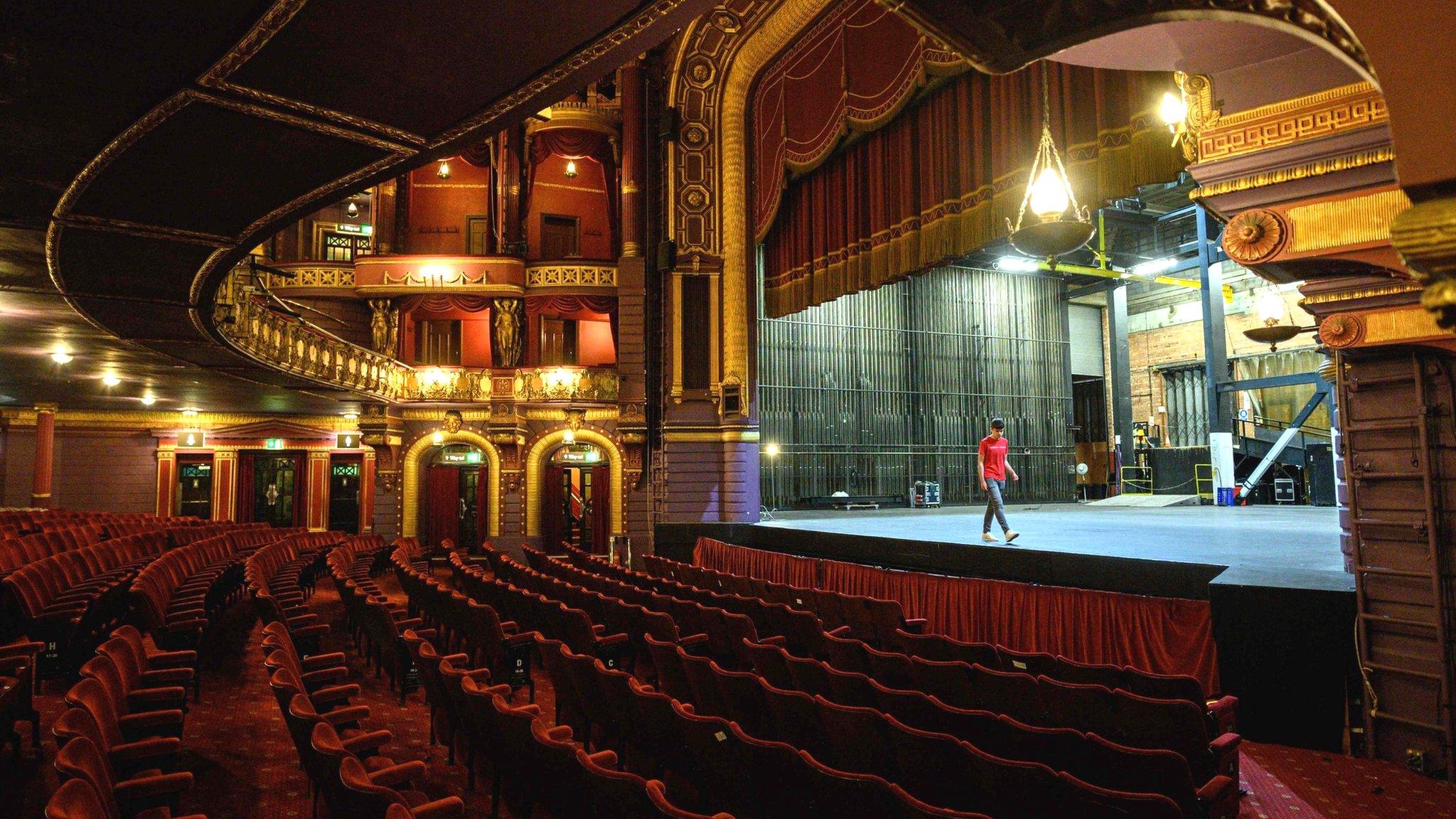Coronavirus: Stand-up comedians call for financial help
- Published
It is "snobbery" not to include comedy in a package to help the arts industry, comedians say
Comedians have called for their work to be recognised as an art form so the industry can qualify for a slice of a bailout package.
Live comedy has been described as being on the brink of collapse as a result of the pandemic.
Comedy rarely qualifies for art grants and performers say it now needs to be considered equally.
The Welsh Government said it is seeking to meet the needs of the arts sector.
Comedian Mike Bubbins said the industry is often left "scraps from the table" when it comes to funding.
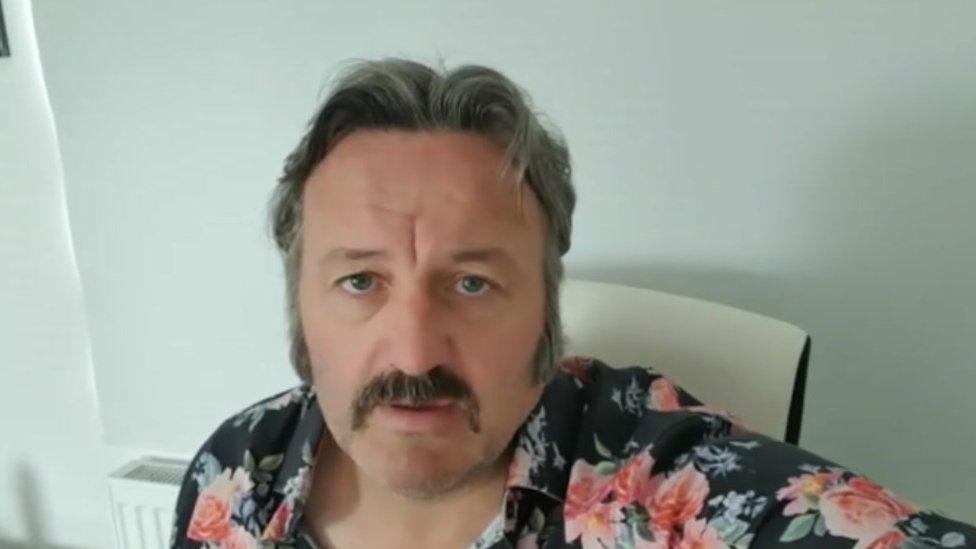
Mike Bubbins' recent work has included BBC Wales' Tourist Trap
"Is it snobbery why comedy isn't recognised as an art form?
"It's hard to say it's not snobbery when theatre gets funded, opera gets funded, the visual arts get funded and comedy is waiting for scraps off the table," he said.
The support package from the UK government is worth £1.15bn in England and means an extra £188m for the devolved administrations.
While Wales gets £59m, Scotland will receive £97m and £33m will go to Northern Ireland.
"I believe comedy has been viewed by people who run the arts as a self-funded art form because it doesn't cost a lot - but those people have never done a run at the Edinburgh Festival which can cost a performer £10,000 and you're not getting any of that money back, but you do it to push your career," said Mr Bubbins.
"It's an expensive art form to be involved in and we just seem to get the sharp end of the wedge. It's not about a hand out, it's about being fair and recognising what comedy is.
"It's not just a bloke or a woman with a microphone in their hands telling a few jokes... you've spent years gigging, travelling, writing material and rewriting material."
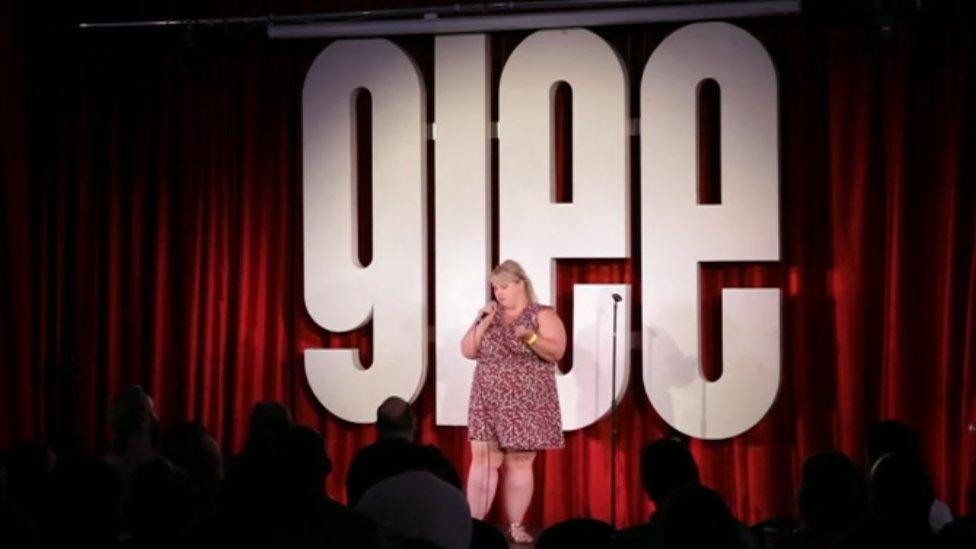
Hayley Southgate on stage at the Glee Club in Cardiff Bay
Mr Bubbins, who is also an actor and writer with recent work including BBC Wales' Tourist Trap, said the Welsh Government needed to lead the way.
"I'd love it if Mark Drakeford said we're going to recognise comedy as part of Welsh culture and treat it fairly," he added.
"You'd hope that England, Scotland, Northern Ireland would then look at Wales and follow."
'On brink of collapse'
The Live Comedy Association has published a report saying 77.8% of venues in the UK fear they will have to close within the year, saying the industry is on the brisk of collapse.
The association surveyed more than 660 people working in comedy, from venue owners and stand-up performers to producers and publicists, about the impact of the coronavirus pandemic.
It revealed more than three quarters of performers earned less than 5% of their pre-pandemic estimated income from online performances.
In Wales, 48% of those asked said they had already lost more than 50% of their annual income and more than 18% have either already left or need to immediately.
Comedian Ignacio Lopez, from Cardiff, saw a year's work disappear overnight.
"I was booked to do shows on 10 cruise ships, but one by one they were cancelled and everything in between went too because I had gigs booked across the UK," he said.
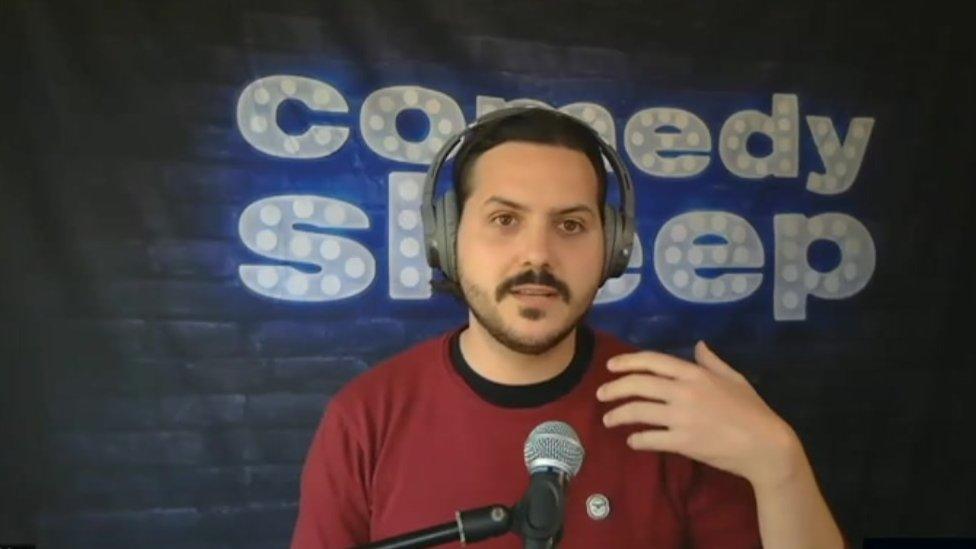
Ignacio Lopez saw a year's worth of bookings cancelled virtually overnight
"That's all gone, it's terrifying to think what's happened to an industry so quickly.
"I'm just getting by on donations from the social media quiz or tickets to the online comedy shows I've started during the lockdown."
Hayley Southgate started out just a year before the pandemic struck, running Babi Comedi in Cardiff and performing shows for parents who can bring babies to daytime performances.
"Comedy can bring entertainment to some groups who can be isolated, for people like myself, if you've got children under two years of age you might not be able to access the arts but they could come to my comedy event," she said.
"It's an art form which covers all demographics. It's such a shame it's been sidelined at this time and it's to the detriment of venues too."
Nick Capaldi, chief executive of the Arts Council of Wales, said: "Comedy has not been a big part of our funding, but given the kind of difficulties, particularly the kind individual artists are facing, this is something we are going to have to think about.
"I think they [the Welsh Government] will want to support arts and culture... but the smaller scale venues, the venues where younger comedians cut their teeth and depend on, these are the venues that are really struggling at the moment, and we need to take a look at that."
A Welsh Government spokesperson said it would continue to work with the Arts Council, the National Museum and others to meet the needs of the sector - with an announcement due in the next few weeks.
Meanwhile Helen Mary Jones, chair of the assembly's culture, Welsh Language and communications committee, called for a commitment that the entire £59m of funding will be spent on the arts industries.
"They are a key part of our economy, providing skilled jobs and putting Wales firmly on the map around the world," she said.
"We are fast running out of time if we are to stabilise and sustain our creative industries."
- Published8 July 2020
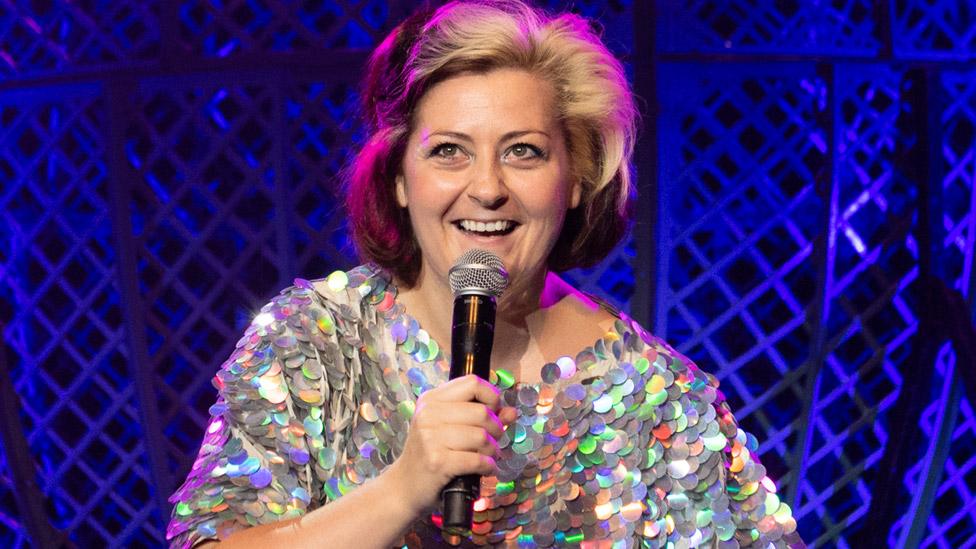
- Published19 June 2020
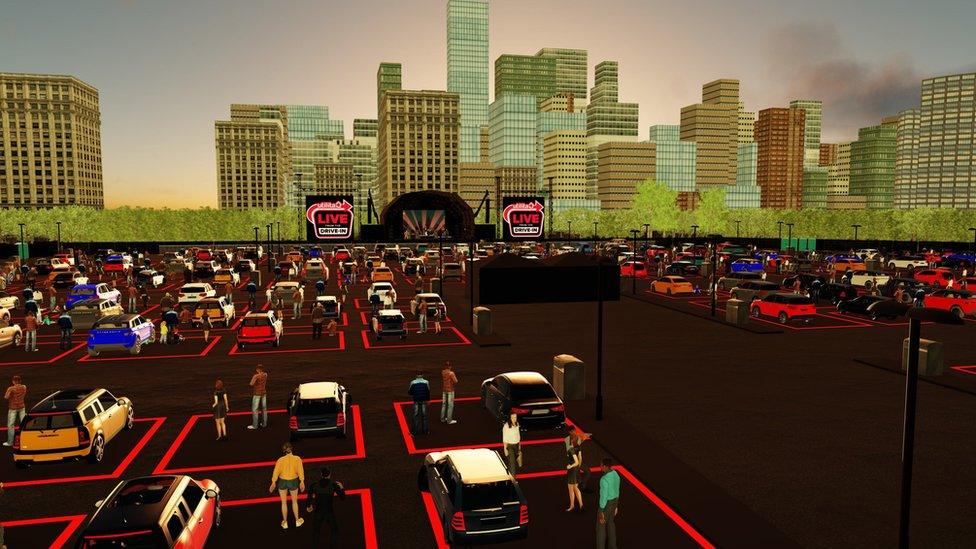
- Published7 July 2020
